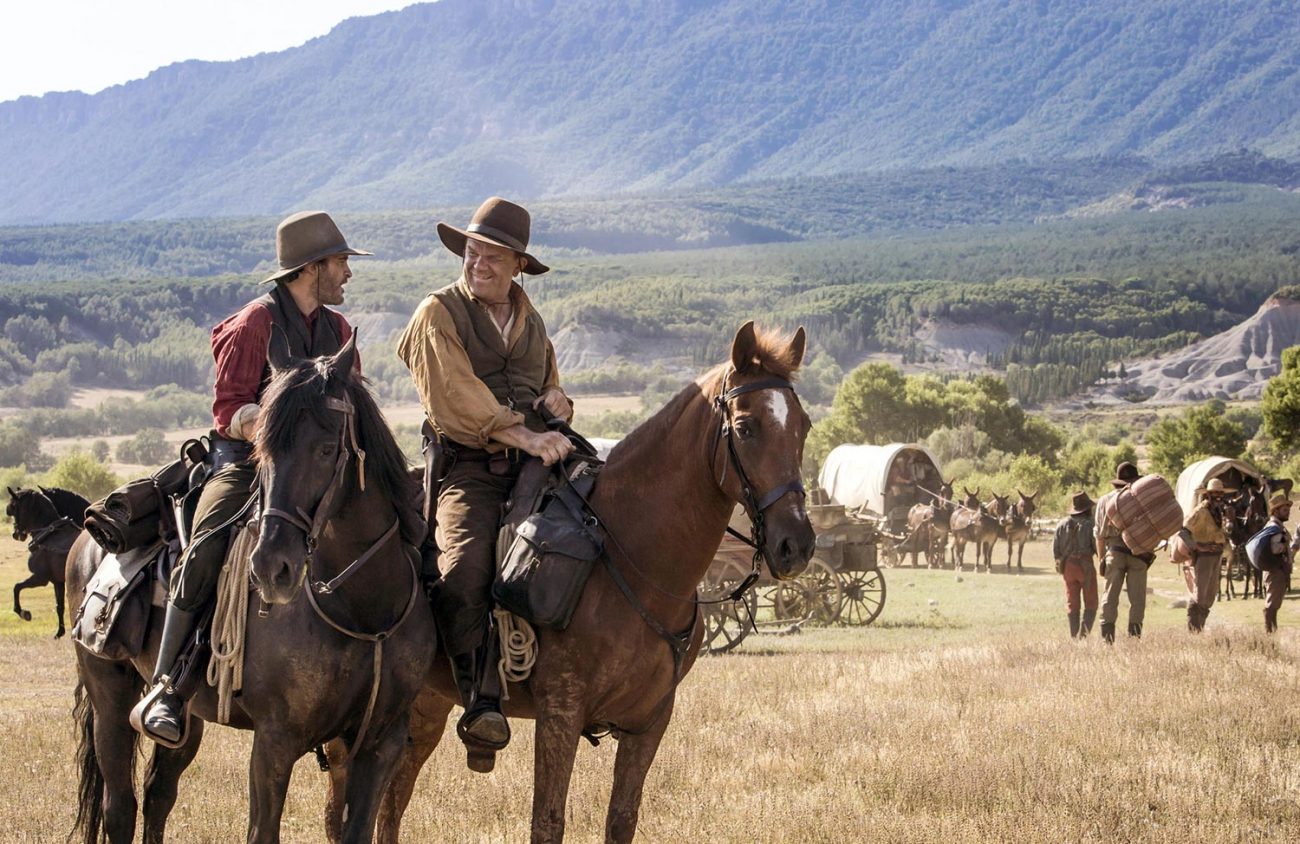What, really, is this thing we call a Western? Outwardly, it’s a movie with horses and six-shooters and cacti and grizzled men and whiskey and no cars. But inwardly, what is it? Primitive morality play? Paradise lost? Genocidal apologetics? Manifest Destiny?
Perhaps a bit of all of these, yes, but still something more. From the early oaters of John Ford, up through the violent recalibrations of Sam Peckinpah, to the woozy reversals of Robert Altman and Clint Eastwood, writers and directors have used the rote elements of the Western genre to reinterpret an essentially American mythology, one that speaks of rugged individualism and democratic passions in collision with military imperialism and rampant capitalist expansion.
Whether that is a tale of triumph or tragedy, or an alchemy of both, depends largely on the state of the empire itself. It also depends, in a more remote way, on the state of the so-called Enlightenment, which brought us scientific progress and rationalism and humanism but also its own kind of spiritual darkness, obviously. In Westerns, if God isn’t dead, he’s certainly on the ropes.
Which brings us to The Sisters Brothers by French director Jacques Audiard, based on the novel of the same name by Portland author Patrick deWitt. I greatly admire deWitt’s novel, which is slapsticky and surreal, in a Kurt Vonnegut way — a dark comedy through and through.
The movie is a different beast altogether.
The film is set mostly in Oregon, 1851, which doesn’t look all that different from Oregon, 2018: full of half-baked libertarians, drunken shitheels and greedy corporate types. It tells the story of two brothers, Eli Sister (John C. Reilly) and Charlie Sister (Joaquin Phoenix), a pair of rugged, Pinkerton-like hired hands commissioned to hunt down and kill Herman Kermit Warm (Riz Ahmed), who stole something from a mysterious man named the Commodore (Rutger Hauer).
Also on the trail is tracker John Morris (Jake Gyllenhaal), who stops pursuing Warm and instead teams up with him when he learns of Warm’s discovery of a chemical solution that reveals the gold in riverbeds. Both men fall under the sway of a utopian vision of establishing a new society free of greed and based on principles of brotherhood and communalism, which they will kick-start with their Gold Rush riches.
These four characters, then, comprise a chamber drama in which the tensions of civilization play out within the skeletal structure of a standard chase story, like something out of Graham Greene or Anthony Mann. At the core of this fable are the Sisters brothers: Charlie, driven by naked self-interest and greed, and relying on violence to get there; and Eli, exhausted by it all and dreaming of peace — of a better way of life that exchanges violence and rivalry for fellowship and love.
And both of them are united by the bonds of blood. Family loyalties tug both brothers against their wills, complicating a power dynamic that is primordial in nature, and may or may not end in death and destruction.
The cast, of course, is top-notch, especially Reilly, whose hangdog sadness is the film’s existential anchor. Phoenix, reprising his raw-nerve Neanderthal role in You Were Never Really Here, is an infantile force of nature whose adherence to brutality is tempered only by his fidelity to his brother. Both Gyllenhaal and Ahmed are excellent as civilized gentlemen — educated, kindly, but a bit pie-eyed about their Enlightenment dreams of social harmony.
The film has action and lots of loud gunplay, but Audiard’s direction tends to tease out the story’s quieter moments, favoring characterization and dialogue. Despite the constant movement and conflict that outwardly compel the narrative, in its quieter moments The Sisters Brothers resembles a play by Chekov — a minor portrait of human interaction that expands outward to become a sly macrocosm of the human dilemma.
Chekov famously said that if you hang a gun on the wall in the first act, it better damn well go off by the final act. But from the get-go, all the guns are off the wall and set ablaze in The Sisters Brothers, and the only question that remains is: Who will be left standing? Is blood thicker than water? What is the price of peace?
Or, just perhaps, are we all simply begging the question? (Bijou Art Cinemas)
